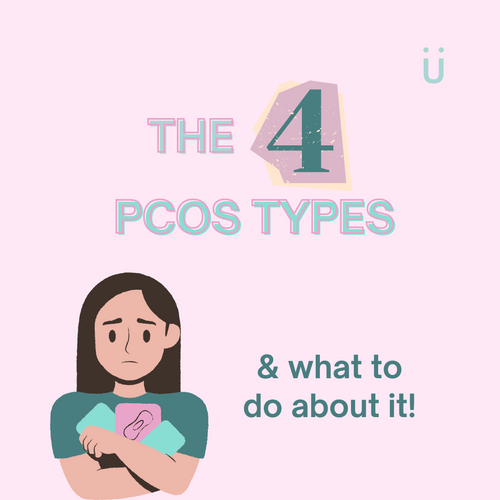Understanding and Managing Different Types of PCOS: A Comprehensive Guide
Living with Polycystic Ovary Syndrome (PCOS) can feel overwhelming, but understanding your specific type of PCOS is key to effective management. This guide will help you identify your PCOS type and discover practical strategies for a healthy, fulfilling life with PCOS.
Can You Live a Normal Life with PCOS?
Absolutely! While PCOS is a chronic condition, many women successfully manage their symptoms and lead healthy, active lives. The key lies in early diagnosis, understanding your specific type of PCOS, and implementing targeted lifestyle changes. With proper management, you can minimize symptoms and reduce long-term health risks.
What is the Best Way to Manage PCOS?
PCOS management typically involves a combination of approaches:
- Lifestyle modifications (diet and exercise)
- Medication when necessary
- Stress management
- Regular medical monitoring
- Targeted supplements based on your PCOS type
The most effective management strategy depends on your specific type of PCOS, which we'll explore in detail below.
What is the Most Common Treatment for PCOS?
The first-line treatment for PCOS typically includes:
- Lifestyle changes to improve insulin sensitivity
- Hormonal birth control to regulate menstrual cycles
- Metformin for insulin-resistant PCOS
- Anti-androgen medications when needed
- Natural supplements like inositol and berberine
Does PCOS Ever Go Away?
While PCOS cannot be permanently cured, symptoms can be effectively managed and may even go into remission with proper treatment. Some types, like post-pill PCOS and adrenal PCOS, may be temporary and can resolve with appropriate intervention.
How Do I Know Which Type of PCOS I Have?
There are four main types of PCOS, each with distinct characteristics and treatment approaches:
1. Insulin-Resistant PCOS
Key Signs:
- Weight gain around the midsection
- Intense sugar cravings
- Fatigue after meals
- Dark patches of skin (acanthosis nigricans)
This is the most common type, affecting about 70% of women with PCOS. Treatment focuses on improving insulin sensitivity through diet, exercise, and sometimes medications like metformin.
2. Inflammatory PCOS
Key Signs:
- Chronic fatigue
- Joint pain
- Skin issues (acne, eczema)
- Digestive problems
- Headaches
Management centers on reducing inflammation through an anti-inflammatory diet and lifestyle changes.
3. Adrenal PCOS
Key Signs:
- High DHEA-S levels
- Normal testosterone
- Stress sensitivity
- Anxiety or mood changes
4. Post-Pill PCOS
Key Signs:
- Symptoms appear after stopping hormonal birth control
- Irregular periods
- Temporary hormonal imbalance
Does Adrenal PCOS Go Away?
Adrenal PCOS can improve significantly with proper stress management and lifestyle modifications. Key strategies include:
- Stress reduction techniques
- Adequate sleep
- Adaptogenic herbs
- Regular exercise
- Blood sugar balance
Many women see improvement within 3-6 months of implementing these changes.
How Long Does Pill-Induced PCOS Last?
Post-pill PCOS typically resolves within 6-12 months after discontinuing hormonal birth control. Recovery time varies depending on:
- Length of time on birth control
- Individual hormone balance
- Lifestyle factors
- Underlying health conditions
Recovery from Post-Pill PCOS
When transitioning off hormonal birth control, your body needs extra support to restore its natural hormone production. Focus on nourishing your body with nutrient-dense foods rich in B vitamins, zinc, and magnesium. These nutrients are often depleted by long-term birth control use and are crucial for hormone balance. Incorporate stress management techniques like meditation or gentle yoga, as stress can interfere with hormone regulation. Most importantly, be patient with your body during this transition period – everyone's timeline for recovery is different, and giving your body time to adjust while supporting it with proper nutrition and self-care is key.
Taking Action: Your Personal PCOS Management Plan
Your PCOS journey is unique, and creating a management plan that works for you is essential for long-term success. While the path might seem overwhelming at first, breaking it down into manageable steps can help you take control of your health with confidence. Here's how to create your personalized approach:
1. Finding Your Healthcare Dream Team
Building a supportive relationship with healthcare providers who understand PCOS is crucial. Schedule comprehensive hormone testing to understand your baseline, share your complete symptom history, and work together to create a treatment plan that aligns with your goals and lifestyle. Remember, you're your own best advocate – don't hesitate to ask questions or seek second opinions.
2. Creating Your Daily Wellness Routine
Small, consistent changes add up to significant results. Start by choosing one or two PCOS-friendly meals to master, then gradually expand your healthy recipe collection. Find physical activities you genuinely enjoy, whether it's dancing, yoga, or strength training. Make stress management a priority through activities that bring you peace, and establish a sleep routine that helps you feel refreshed and energized.
3. Tracking Your Progress Journey
Monitoring your PCOS symptoms helps you understand what works for you. To make tracking easier, download our free Moody Calendar template designed specifically for women with PCOS. This comprehensive tracking tool helps you monitor your menstrual cycle, mood changes, energy levels, food sensitivities, and symptom patterns all in one place. [Download Your Free PCOS Moody Calendar Here]
The calendar includes sections for:
- Daily mood and energy tracking
- Symptom severity scales
- Food and exercise logs
- Sleep quality monitoring
- Stress level indicators
- Treatment response notes
Use these insights during regular check-ups with your healthcare team to celebrate improvements and adjust your plan as needed. Remember, progress isn't always linear – small wins count, and your Moody Calendar will help you spot positive patterns you might otherwise miss!
4. Building Your Support Circle
You don't have to navigate PCOS alone. Connect with others who understand your experience through local or online PCOS support groups. Share experiences, exchange tips, and celebrate victories together. Consider working with a PCOS-specialized nutritionist who can provide personalized dietary guidance and emotional support on your healing journey.
Remember, PCOS management is highly individual, and what works for one person may not work for another. The key is finding the right combination of treatments and lifestyle changes that work for your specific type of PCOS.
Conclusion
Understanding your PCOS type is crucial for effective management. While living with PCOS presents challenges, proper diagnosis and targeted treatment can lead to significant symptom improvement and better overall health. Stay committed to your management plan and don't hesitate to adjust strategies as needed with guidance from your healthcare team.





